Your doctor knows your medical history so they will be able to search for a facility with your needs in mind. In addition, many doctors are familiar with sending patients to homes like these, and they will likely know the ones with the best reputations in your community. New York City’s homeless population is no monolith, and the 2005 NY/NYIII supportive-housing funding agreement explicitly recognized that. Kingsbridge Terrace, a supportive housing facility run by Jericho Project in the Bronx, was in part funded for “Population F”—substance users who recently finished treatment. By Julia Childs Heyl, MSWJulia http://www.silencedead.com/page.php?id=349 Childs Heyl, MSW, is a clinical social worker and writer. As a writer, she focuses on mental health disparities and uses critical race theory as her preferred theoretical framework.
Sober Living Homes and Supportive Housing Programs
- American Addiction Centers (AAC) is committed to delivering original, truthful, accurate, unbiased, and medically current information.
- During the Koch era, residents of supportive housing were generally required to prove sobriety before they got a room.
Often the structure and routine of treatment programs help keep folks sober, and risking the loss of that when completing the program can be a threat to your recovery. Some sober living houses will allow you to offset the cost of your rent by doing work within the home. Given these struggles, men-only homes usually focus on early treatment, mental health support, relapse prevention, and aftercare programs. Substance abuse professionals at the sober living house ensure safety and well-being by conducting random drug tests and enforcing a curfew.
Take the Next Step…
As such, sober living houses serve as a space to transition into a life without addiction, developing tools and community while getting used to the demands of daily life. The halfway house gives structure but also provides you with more freedom than an inpatient rehab program where you are not typically allowed to come and go as you please. You are generally allowed to attend school or go to work and return home to the sober living house at night. Supportive housing programs blend housing with services aimed at helping residents manage health issues, substance abuse, and mental health, fostering independence and self-reliance. These programs provide the required support systems to help patients form healthy habits, lead a healthy lifestyle, and establish new daily routines. The ultimate goal of every sober living home is to ease the transition from Inpatient treatment or Outpatient programs into regular living and sober activities.
- One of the most important factors in recovery from drug or alcohol addiction is the social support a recovering person receives during this critical time.
- If you choose both mutual help groups with formal treatment, your success rate increases even more (Mutual Help Group Roles).
- However, you might be wondering what happens now that the detox is over, you’ve completed your stay at an addiction treatment center, and it is time to go home.
- Often the structure and routine of treatment programs help keep folks sober, and risking the loss of that when completing the program can be a threat to your recovery.
- Sober living homes typically do not limit the length of stay and may not require previous attendance in a formal addiction treatment program.
- In addition, many doctors are familiar with sending patients to homes like these, and they will likely know the ones with the best reputations in your community.
Transitional Housing and Sober Housing in New York: Find a Safe Place to Live and Recover
As the NIDA states, “No single treatment is appropriate for everyone.” This is why some individuals may choose to stay in a sober living house instead of attending formal inpatient treatment. Others may decide that they need some sort of aftercare option once their professional treatment has ended, and choose this option to help them through their transition back into the real world. For many reasons, clean and sober transitional living could be a necessary https://dnews7.com/if-the-child-is-left-handed.html component of your recovery, but finding a facility can be tricky.
Transitional Living Facilities
Everyone involved with Clean and Sober Homes is in recovery or has family in recovery! John C. Umhau, MD, MPH, CPE is board-certified in addiction medicine https://nelyager.ru/post164400492/ and preventative medicine. For over 20 years Dr. Umhau was a senior clinical investigator at the National Institute on Alcohol Abuse and Alcoholism of the National Institutes of Health (NIH). You can enjoy healthy meals in the evening, followed by group therapy sessions. Nighttime is often reserved for free time when you can call loved ones, read books, or watch television. We want to ensure you are prepared and comfortable throughout your treatment experience at Psyclarity Health.
Seek Feedback From Those that Want to Help You on Your Journey
Structured sober living homes offer a secure, supportive, and private environment to those grappling with recovery and the risk of relapse. As everyone in these homes is on a similar journey towards recovery, they can learn from each other and confidently chart their own path forward. You may be able to find out about local facilities by asking the other attendees. Additionally, the sponsor running the meeting will be able to give you information on possible nearby facilities as they will have likely worked with both former and current residents.
